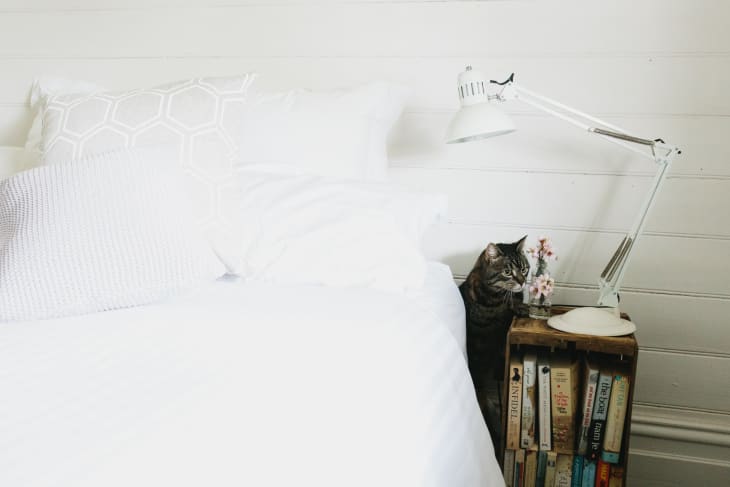Here’s How Much Sleep Scientists Say You Need, Based on Your Age
Apartment Therapy’s annual Small/Cool Contest is back again! Look inside 71 homes and tell us which is the smallest and coolest. The grand prize winner will get $1,000.Start voting now!
Sleep is an important part of remaining healthy, but it can often take a backseat to work, family, and late-night Netflix. And if you’re an adult who wants to prioritize sleep over work, family, and late-night Netflix, you should get eight hours, right? Well, you actually could need more or less sleep based on your age.
According to a two-year National Sleep Foundationstudy, sleep needs differ across ages. For adults, getting seven to nine hours of shuteye is needed, while younger age groups require more. Here are their full recommendations:
- 不wborns (zero to three months): 14 to 17 hours
- Infants (four to 11 months): 12 to 15 hours
- Toddlers (one to two years): 11 to 14 hours
- Preschoolers (three to five years): 10 to 13 hours
- School-aged children (six to 13 years): nine to 11 hours
- Teenagers (14 to 17 years): eight to 10 hours
- Young adults (18 to 25 years): seven to nine hours
- Adults (26 to 64 years): seven to nine hours
- Older adults (65 years and up): seven to eight hours
The organization also advised against getting less than your recommended nightly ZZZs, as sleep deprivation could lead to heart disease and other health risks, not to mention being cranky all the time. Oversleeping, meanwhile, could make depression more severe. If you really must to stay up late or stay in bed longer, here are the durations you should be careful to avoid:
- Young adults (18 to 25 years): under six hours or more than 11 hours
- Adults (26 to 64 years): under six hours or more than 10 hours of sleep
- Older adults (65 years and up): under five hours or more than nine hours
The National Sleep Foundation also said that, aside from following the “range,” you can sleep better by having a sleep schedule (even on weekends), practicing a relaxing bedtime ritual like taking a hot shower, exercising daily, andevaluating your bedroomto ensure ideal temperature,sound, and light.
“Most importantly, make sleep a priority,” the organization said. “You must schedule sleep like any other daily activity, so put it on your ‘to-do list’ and cross it off every night. But don’t make it the thing you do only after everything else is done—stop doing other things so you get the sleep you need.” Yes, Netflix included.

